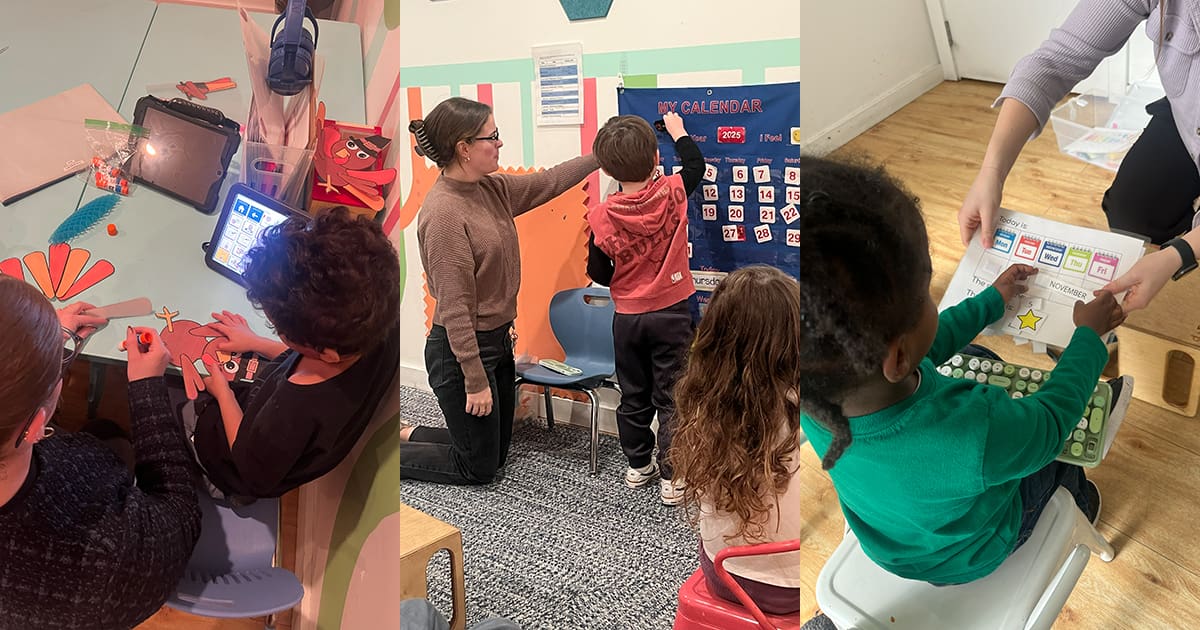Share this Post

A Caring Guide to Helping Preschoolers Master “Who, What, Where, When, and Why”
As a parent, teacher, or caregiver, you may have noticed that questions are a core part of a child’s world. Preschoolers are naturally curious, and as they develop language and communication skills, learning to understand and answer “WH questions” (Who, What, Where, When, and Why) plays a key role in their development. These questions unlock a child’s ability to describe their surroundings, share experiences, and make sense of the world.
But WH questions don’t always come easily to children, especially those facing developmental challenges like speech delays or autism. This guide will help you understand why WH questions matter, how they promote learning and communication, and provide practical strategies you can use at home or in a therapeutic setting to help your child succeed.
Why Are WH Questions Important for Preschoolers?
WH questions are essential for communication because they promote conversation, comprehension, and critical thinking. Mastering them helps children:
- Express Their Needs: “What do you want to eat?”
- Understand Context: “Where did you leave your shoes?”
- Gain Social Awareness: “Who is your teacher today?”
- Tell Stories: “When did you go to the park?”
- Develop Problem-Solving Skills: “Why did the dog bark?”
Children who can effectively answer WH questions are better equipped to engage in everyday conversations, interact with peers, and succeed academically. For children with speech or language delays, focusing on WH questions early can significantly improve overall language development.
When Should Preschoolers Learn WH Questions?
Children typically begin to understand and answer basic WH questions between ages 2 and 4. Here’s a general timeline of milestones:
- Age 2-3: Children start understanding and answering simple “What” and “Where” questions. For example, “What is this?” or “Where is your toy?”
- Age 3-4: They expand their understanding to “Who” and “When” questions. For example, “Who is eating lunch?” or “When do we go to school?”
- Age 4 and up: Children begin to answer more complex “Why” questions, which require reasoning and connecting ideas. For example, “Why do we wear a jacket when it’s cold?”
Challenges Some Preschoolers Face with WH Questions
Not all children develop WH question skills at the same pace. Some common reasons for delays include:
- Speech or language delays
- Developmental disorders such as autism
- Difficulty with comprehension or attention
- Limited exposure to interactive conversations
If your child struggles with WH questions, it’s important to be patient and use intentional strategies to build these skills.
How to Teach WH Questions to Preschoolers: Simple, Fun, and Interactive Techniques
1. Start with Visual Supports
Preschoolers often learn best when they can see what you’re talking about. Use picture cards, books, or everyday objects to introduce WH questions visually. For example, show a picture of a dog and ask:
- “What is this?”
- “Where is the dog?”
- “Who is walking the dog?”
Visual aids help reinforce comprehension, making it easier for children to connect the question to the answer.
2. Use Real-Life Situations
Incorporate WH questions into your child’s daily routine. Everyday activities like getting dressed, mealtimes, or playtime offer countless opportunities to ask and answer questions.
- During breakfast: “What are you eating?”
- On the playground: “Where is the slide?”
- Getting ready for bed: “When do we brush our teeth?”
These natural interactions help children see the relevance of WH questions in their lives, making it easier to retain the skill.
3. Play WH Question Games
Turn learning into play! Fun games help children stay engaged and make practicing WH questions less intimidating. Here are some ideas:
- WH Question Scavenger Hunt: Hide objects around the house or yard and ask questions like, “Where did you find the ball?” or “Who is holding the next clue?”
- Guessing Games: Show your child a picture or describe an object and ask them to guess based on WH questions: “What am I thinking of?” or “Where would you find this object?”
4. Use Songs and Rhymes
Preschoolers love music, and you can use songs and rhymes to reinforce WH questions. Create simple, repetitive songs like:
“Who’s coming down the slide today? What will they play? Where will they hide?”
Songs help children remember the structure of WH questions while having fun.
5. Model Answers and Provide Cues
If your child struggles to answer a question, provide a model response or hint to guide them. For example:
- Ask: “What is this?” (showing a picture of a cat)
- If your child hesitates, say: “It’s a cat. Now you try: What is this?”
Gradually reduce the prompts as your child gains confidence.
When Should You Seek Additional Support?
If your child consistently struggles to answer or understand WH questions beyond the typical developmental milestones, it may be beneficial to seek support from a speech-language pathologist or early intervention specialist. Early support can help bridge developmental gaps and set your child on a path to success.
At CST Academy, our personalized approach to speech therapy focuses on building foundational language skills like answering WH questions. Our caring therapists work closely with families to create engaging, tailored interventions that meet each child’s unique needs.
WH Questions for Preschoolers: FAQs
Q: What’s the easiest way to start teaching WH questions?
A: Start with simple “What” and “Where” questions using everyday objects and routines. Gradually introduce more complex questions as your child progresses.
Q: How can I encourage my child to answer WH questions during play?
A: Use fun, interactive games like scavenger hunts or guessing games. Incorporate favorite toys and activities to keep them motivated.
Q: How do I know if my child needs speech therapy for WH questions?
A: If your child struggles to understand or answer basic WH questions and is not meeting developmental milestones, it’s a good idea to consult a professional for an evaluation.
Conclusion: Helping Your Preschooler Master WH Questions
Learning to answer WH questions is a vital step in your child’s language and cognitive development. With patience, creativity, and consistent practice, your child can build the skills needed to communicate effectively and explore the world around them.
If you’re looking for additional support, CST Academy offers compassionate, individualized programs designed to help children thrive. Contact us today to learn more about our speech therapy services and how we can help your child build a strong foundation for lifelong learning.
Schedule a tour or consultation today and let’s help your child grow, one question at a time!
Discover Our Pediatric Therapy & Autism Care
ABA Therapy
Support for children with autism.
Autism Evaluation
Expert assessments to identify child needs.
Pediatric Therapy Services
Speech, Occupational, Feeding, and Physical Therapy.
Therapeutic Preschool
A classroom environment designed for early learners with unique needs.

Find the Best Care for Your Child




